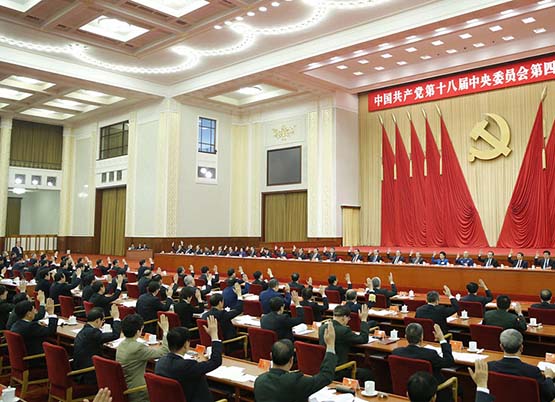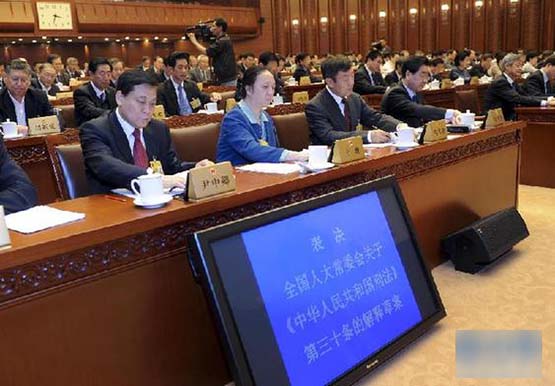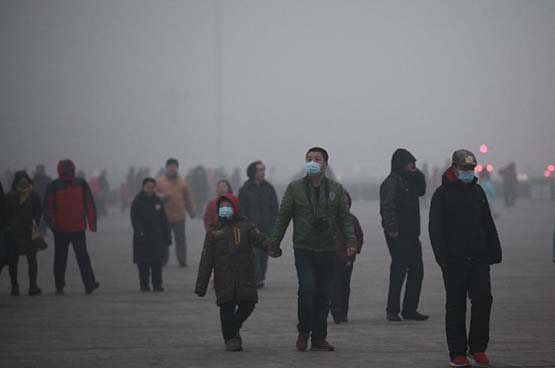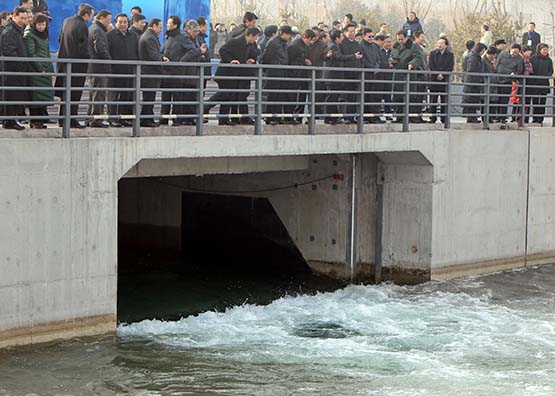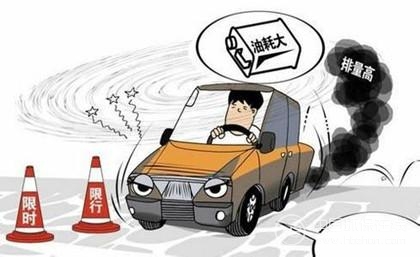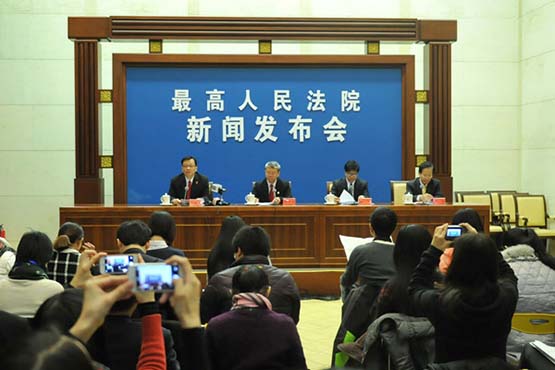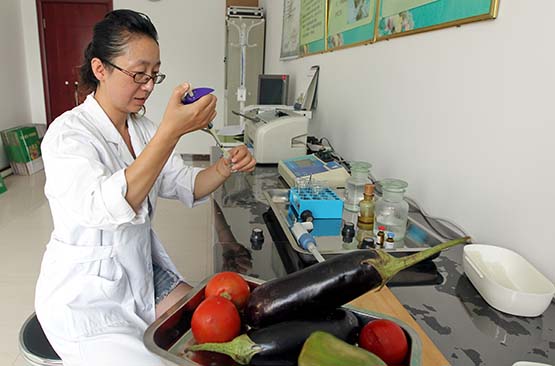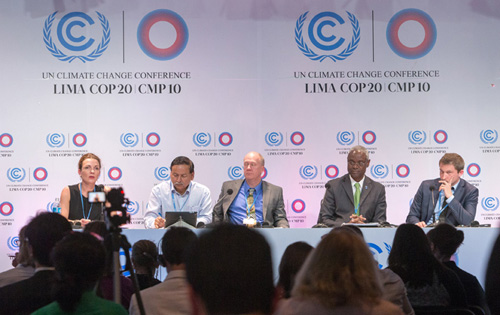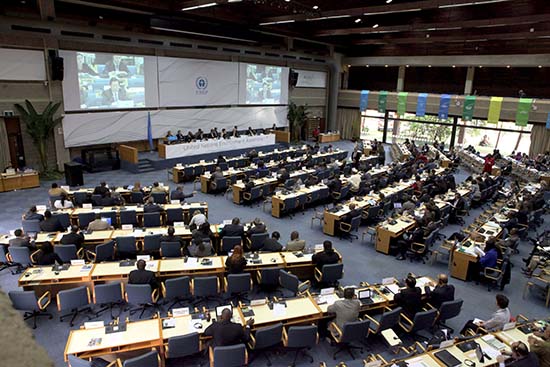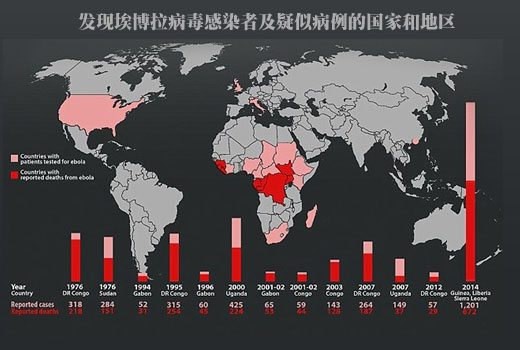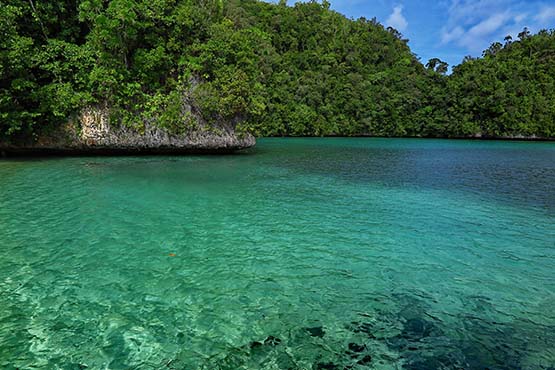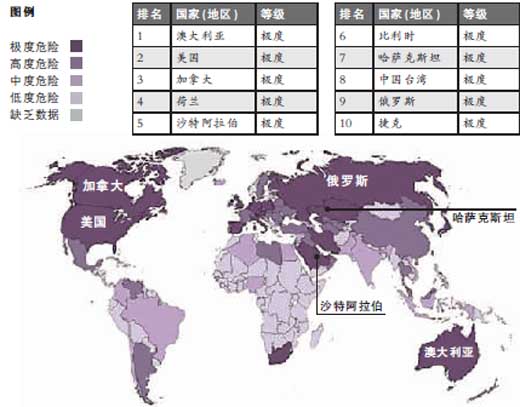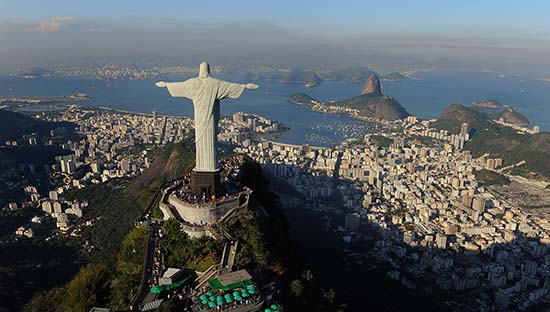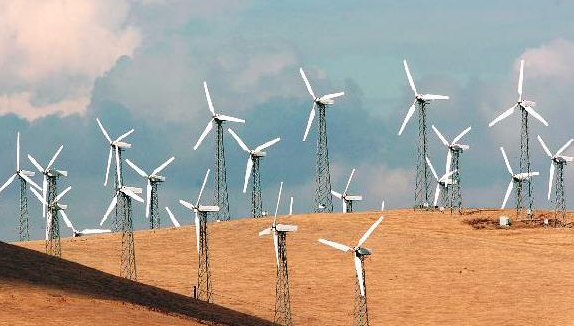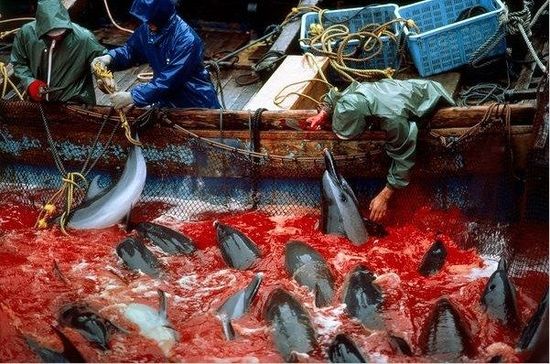1 The Fourth Plenary Session of the 18th CPC Central Committee proposed to protect the ecological environment with a strict legal system. From October 20th to 23rd, the Fourth Plenary Session of the 18th CPC Central Committee proposed to protect the ecological environment with a strict legal system and accelerate the establishment of an ecological civilization legal system that effectively constrains development activities and promotes green development, circular development, and low-carbon development. Strengthen the legal responsibility of producers for environmental protection and significantly increase the cost of illegal activities. 2 The newly revised Environmental Protection Law was promulgated On April 24, the Standing Committee of the National People's Congress voted to adopt the newly revised Environmental Protection Law. For the first time, the new law will write the red line of ecological protection into the law, and increase the punishment. It is clear that the illegal sewage disposal enterprises will be punished on a daily basis, and the fines will not be capped. In order to implement the new "Environmental Protection Law", the General Office of the State Council issued the "Notice on Strengthening Environmental Supervision and Enforcement" on November 27. 3 Implementation of joint defense joint control during the APEC meeting to achieve more blue sky In November, the Ministry of Environmental Protection sent 16 inspection teams to conduct special inspections on the deployment of security plans for 24 key cities in Beijing, Tianjin and Hebei. According to preliminary calculations, Beijing, Tianjin, Hebei, Shanxi, Inner Mongolia, Shandong and other six provinces (autonomous regions and municipalities) actually shut down 9298 enterprises during the meeting, 3900 limited production enterprises, and more than 40,000 work stoppages to achieve APEC Blue. 4 Pollution incidents such as the Tengger Desert cause concern In April, Lanzhou was affected by the leakage of the crude oil pipeline of PetroChina, and the benzene content of tap water was seriously exceeded. In September, the industrial pollution caused by the industrial pollution in the hinterland of the Tengger Desert was highly valued by the Party Central Committee, and the central leadership made important instructions. In October, the Ministry of Environmental Protection decided to organize a comprehensive inspection of environmental protection throughout the country to comprehensively inspect various industrial parks and industrial enterprises with waste water, waste gas and hazardous waste. 5 smog governance still remains a hot spot for the whole society On January 30 (Lunar New Year's Eve), the process of heavy air pollution occurred in Beijing-Tianjin-Hebei and surrounding areas, the Yangtze River Delta region, and some cities in the central and western regions. On April 30, the General Office of the State Council issued the "Measures for the Implementation of the Air Pollution Prevention and Control Action Plan (Trial)". On October 8, China’s central and eastern regions began to be shrouded in haze again. On November 26, the State Council executive meeting passed the "Law of the People's Republic of China on Prevention and Control of Air Pollution (Revised Draft)". The 12th meeting of the 12th NPC Standing Committee, which opened on December 22, made the first review of the draft. 6 South-to-North Water Transfer Middle Route Project On December 12, the first phase of the South-to-North Water Transfer Project was flooded, which will increase the water resources and water environment carrying capacity of the water receiving area. The three provinces of Henan, Hubei and Shaanxi in the middle-line water source area actively protect the source of live water, invest in the construction of urban sewage and garbage treatment facilities, cover all cities and towns above the county level and key towns in the water source area, and shut down thousands of polluting enterprises to ensure a clear water north. About 60 million people along the 4 provinces of Henan, Anhui, Tianjin and Beijing can directly drink the Hanjiang water with excellent water quality. The elimination of 76 million heavy pollution vehicles was overfulfilled in advance In March, the “Government Work Report†proposed the task of eliminating 6 million yellow-label vehicles and old vehicles this year. Subsequently, the six ministries and commissions such as the Ministry of Environmental Protection prepared and issued the “Implementation Plan for the Elimination of Yellow Label Vehicles and Old Vehicles in 2014â€. Strengthen the prevention and control of motor vehicle pollution. As of the end of November, 6,113,400 yellow-label vehicles and old vehicles were eliminated, and the annual tasks were exceeded in advance. 8 The Supreme People's Court established the Environmental Resources Tribunal In mid-June, the Supreme People's Court Environmental Resources Trial Chamber was established internally. The establishment of a special environmental resource trial institution, the implementation of environmental justice specialization, China's environmental justice to a new level. 9 Economic policies promote environmental protection On September 1, the National Development and Reform Commission, the Ministry of Finance and the Ministry of Environmental Protection jointly issued the "Notice on Adjusting the Collection Standards for Sewage Charges, etc.", and the standards for the collection of sewage and sewage main pollutant discharge fees will be greatly increased. On November 16, the State Council issued the "Guiding Opinions on Investment and Financing Mechanisms in Key Areas of Innovation to Encourage Social Investment." On December 4, the Ministry of Environmental Protection announced a list of companies that insured environmental pollution liability insurance. 10 National Soil Pollution Status Survey Bulletin Released In April, the Ministry of Environmental Protection and the Ministry of Land and Resources jointly issued a national survey on soil pollution. The overall situation of soil environment in the country is not optimistic. The soil pollution in some areas is heavier, the soil quality of cultivated land is worrying, and the soil environment problems in industrial and mining wasteland are prominent. International Top Ten Environmental News 1 The first UN Environment Conference was held From June 23rd to 27th, the first UN Environment Conference was held in Nairobi, Kenya. Since then, all UN member states have been able to discuss global environmental and sustainable development issues and make decisions at the ministerial level. The first conference produced 16 resolutions on improving air quality, combating illegal trade in wildlife, chemicals and waste management. 2 Lima Climate Conference has limited results From December 1st to 14th, the 20th Conference of the Parties to the United Nations Framework Convention on Climate Change and the 10th Conference of the Parties to the Kyoto Protocol were held in Lima, Peru. The final resolution adopted by the General Assembly and the expectations of all parties are still There is a gap, but there is basically agreement on the elements of the 2015 Paris Conference Agreement. 3 China and the United States refresh emission reduction commitment On November 12th, China and the United States issued the "Sino-US Joint Statement on Climate Change" during the APEC Informal Leadership Meeting in Beijing, and jointly promised to reduce carbon emissions, which is one of the biggest achievements of this meeting. The United States has also adopted a series of emission reduction measures such as the release of new regulations for coal-fired power plants and the introduction of new fuel and motor vehicle standards. 4 Ebola virus in West Africa once again sparked thinking about respecting nature In February, the Ebola virus first broke out in Guinea and then spread rapidly. At present, the study believes that the Ebola virus originated from fruit bats and can be transmitted to other animals and then passed on to humans. This global public health event once again warns people that only by learning to live in harmony with nature can they be naturally respected. 5 EU determines new targets for 40% reduction in 2030 On October 24th, at the EU autumn summit in Brussels, EU leaders reached an agreement on the 2030 emission reduction targets. The EU plans to reduce greenhouse gas emissions by 40% by 2030 by 2030, increase the share of renewable energy in total energy use to 27%, and increase energy efficiency by at least 27%. At present, the EU's goal of reducing emissions by 20% in 2020 is almost achieved. 6 Climate change impacts on small island states raises global attention On 1 September, the Third International Conference on Small Island Developing States was held in Samoa. The impact of climate change on small island developing States is receiving increasing attention. Small island states have little “contribution†to global climate change, but are highly vulnerable to sea level rise, storms, floods and other climate change-related disasters. Addressing the challenges faced by small island states has become a top priority. 7 Australia's carbon emissions soar after carbon tax abolition On July 17, Australia passed a series of bills to abolish the carbon tax, and the two-year carbon tax bill was officially abolished. According to the bill, the big companies that benefited must return the saved carbon tax to consumers within a certain period of time, and will face a 250% fine after the deadline. Since the abolition of the carbon tax, Australia's carbon emissions and electricity demand have continued to rise, breaking the previous six-year decline. 8 Brazil World Cup successfully achieved carbon neutrality From June 12th to July 13th, the 20th World Cup was held in Brazil. In order to offset carbon emissions and achieve carbon neutrality, Brazil has adopted a series of carbon reduction measures, including LEED certification for all 12 courses, and called on companies to donate carbon credits to offset the carbon emissions generated by the World Cup and launch a “green passport†operation. The low-carbon action of the World Cup in Brazil set a role in carbon reduction for large international events. 9 EU's cancellation of renewable energy subsidies has been criticized by environmental organizations On April 9, the European Commission issued a new regulation, announcing the phasing out of state subsidies for renewable energy industries such as solar, wind and biomass, and the new regulations came into force on July 1. Since 2017, all EU member states will be forced to subsidize the renewable energy industry. Some environmental groups worry that Europe will slow down towards clean energy. 10 International Court of Justice ordered Japan to stop whaling On March 31, the International Court of Justice in The Hague issued a verdict on Australia’s accusation against Japan’s whaling in the Antarctic waters, arguing that Japan’s whaling activities were not for the purpose of so-called “scientific research†and ordered Japan to stop the activity. The Japanese government said on November 18 that it plans to reduce the number of whaling in the Antarctic waters every year, reducing the number of minke whales by two-thirds a year, while not killing humpback whales and fin whales. Plate Heat Exchanger Spare Parts,Plate Heat Exchanger,Plate Spare Part,Plate Type Heat Exchanger Dongguan Runfengda F&M Co., Ltd , https://www.runfengdaphe.com